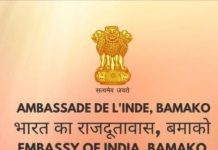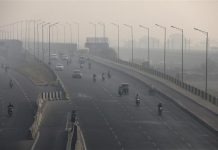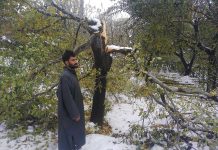Pakistan is faced with a very tricky problem concerning its tribal areas bordering Afghanistan. The existing system of governance in its Federally Administered Tribal Areas (FATA) has proved to be virtually non-functional, giving sleepless nights to the rulers in Islamabad.
FATA, which includes tribal agencies, is administered through a Political Agent system controlled by the federal government in Islamabad. The Political Agent, who has been generally found to be the least interested in concentrating on economic development of the vast region, is mainly the Governor of the neighbouring province, Khyber-Pakhtunkhwa (KP), earlier called the North-West Frontier Province (NWFP). He runs the administration in FATA by assigning duties to the NWFP’s senior officers, who do nothing other than what the tribal system, highlighted by the jirga tradition, allows them.
Now, there is a strong desire to take appropriate measures to improve the economic condition of the people in FATA who have been providing recruits to extremist and terrorist outfits having their bases in the region and other parts of Pakistan. It is believed that increased development activity may serve as an antidote to control terrorism and extremism. According to media reports, at this stage whatever little business activity goes on there is visible in the form of shops selling goods needed by the tribal population. But, interestingly, most of these shops are owned by settlers from across the Durand Line — Afghanistan. The local people are living a life of extreme poverty.
All this has led to an unending debate that either FATA should be accorded the status of a separate province or it should be merged with KP with a view to transform the socio-cultural and economic face of the region through a non-tribal modern system of governance. There is also a suggestion for the constitution of a FATA executive council or agency councils to take care of development in the region. Those favouring merger with KP argue that the purposes of economic growth and bringing the FATA people into Pakistan’s national mainstream would be served well as a result of such a decision without any major financial burden on the state exchequer. There would be no socio-cultural problem too as the people speaking Pashtu (Pakhtuns) constitute the majority population in KP, and FATA is mostly inhabited by Pashtu-speaking tribes. In any case, FATA is already administered by the Governor and officers belonging to KP.
There are many other advantages too. So far as the issues related toculture, customs and freedom are concerned, these can be tackled bycreating a system of Provincially Administered Tribal Areas (PATA) instead of the Federally Administered Tribal Areas (FATA).
A committee constituted to look into the FATA question also recommended that the region should be merged with KP to find a solution to the problems it faces. It was argued that all the areas in FATA are better connected with towns in KP than with those within FATA itself. It is mostly dependent on KP not only for administrative purposes but also for trade-related requirements. Moreover, very little financial resources will be required if a decision is taken for the merger of KP and FATA to create one big province.
The committee’s recommendation has been supported by at least three major organizations — the Awami National Party (ANP), the Pakistan Tehreek-e-Insaf (PTI) and the Jamaat-e-Islami (JI).
However, the merger idea has many powerful opponents, including the Jamiatul Ulema-e-Islam (JUI) headed by Maulana Fazal-ur-Rahman, who has a large following in FATA. The JUI has threatened to oppose with all its might any move for merging FATA with KP as this would amount to pushing FATA further into darkness. The JUI says any change in the status of FATA can be thought of only by taking into account the region’s customs and traditions.
According to a Dawn report, a senior tribal leader, Malik Ghaffar Khan Afridi, has asserted that the idea of FATA’s merger with KP is unthinkable as a vast majority of tribal people are opposed to it. He has also expressed his opposition to any move for the extension of the jurisdiction of the Supreme Court and the KP High Court to FATA, arguing that the people of the region would prefer to settle their disputes through their jirga system. He said, “We want constitutional protection for our traditional tribal customs and the system of jirga.”
Some time back, the Pakhtunkhwa Milli Awami Party convened a <jirga> in Islamabad when the idea of merger was opposed by almost every speaker. They advocated the creation of a separate province to take care of the problems faced by FATA. They expressed the apprehension that FATA would lose its identity once it became a part of KP. Its inclusion in KP will also add to the feeling of marginalisation among the province’s minorities like the Saraiki-speaking people (who constitute 60 per cent of the population of Dera Ismail Khan division), the Hazaras and the Chitralis.
They want FATA to be declared a separate province despite the difficulties it may face for some time. The pro-separate-province elements are the least bothered about what many experts have pointed out: FATA as a province may face an acute shortage of officers as is the case with Balochistan; a modern system for revenue collection, justice delivery institutions and a set-up for law enforcement may take decades to function properly. It will remain as ungovernable as it is today if it becomes a new and fifth province of Pakistan.
All the arguments given against the demand for converting FATA into a separate province appear to be meaningless if one goes deeper into the identities of the tribal communities and their distinct history. Their Pakhtun ethnicity, language, customs and traditions have held them together for centuries. They will never feel comfortable if they do not have their own province will all the rights and responsibilities as a federal unit of Pakistan. Development of FATA will be speeded up only when it is not a part of KP.
There is very little information available about the number of industrial units in the FATA region as Pakistan’s Federal Statistics Division has never carried out any such survey in FATA. Only seven industrial units were set up in the public sector during Zulfikar Ali Bhutto’s rule as Prime Minister. The region has remained ignored ever since Pakistan was created. These so-called “non-settled” areas need a different kind of treatment so that they have increased interaction with the outside world. This may make the people living there realise that they must keep themselves away from the path of violence in their own socio-cultural and economic interest.
letters@tehelka.com














